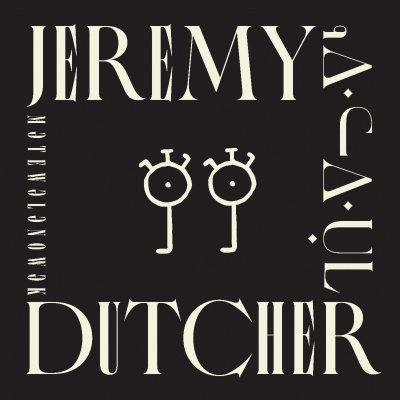|
Today, Jeremy Dutcher - the classically trained Two-Spirit song carrier, composer, activist and member of Neqotkuk (Tobique First Nation) in Eastern Canada - announces his sophomore record, Motewolonuwok, to be released October 6th on Secret City Records, with new single “Ancestors Too Young.” The new release will be available in digital, CD and LP formats.
Pre-order/Pre-save Motewolonuwok HERE
Dutcher originally vaulted himself into the upper echelons of Canadian performance with his 2018 debut, Wolastoqiyik Lintuwakonawa. Since winning the Polaris and JUNO Prizes, performing for NPR Tiny Desk, and collaborating with Yo-Yo Ma, Buffy St. Marie and Beverly Glenn Copeland, Dutcher returns with a moving and radiant exploration of contemporary Indigeneity and his place within it, presenting his most expansive work yet.
The Motewolonuwok album inspiration began with a poem by Cherokee writer Qwo-li Driskill. “From the heavy debris of loss, together we emerge,” a singular story of a two-spirit kin who was taken too soon, and calls us all together to witness, celebrate and heal. Jeremy sings in Wolastoqey — his native tongue, considered an endangered language — anchoring his work while he continues to reimagine the song traditions of his people from the banks of the Wolastoq River, just like he had previously done on his first full-length.
The new album also marks Dutcher’s first time writing and singing in English. A powerful invitation for collective healing and understanding. “Shared tongue is a beautiful gift, with a complicated reason,” Dutcher explains. These new English songs are also a way of singing directly to the newcomer, or settler, in their own language — a direct line of communication that seeks to platform his community’s stories of healing, resilience, and emergence to all that may hear.
While Jeremy’s recent release — the “tender and lyrical” (WNYC) “moving piece” (CBC Music) “Skicinuwihkuk” — demands land sovereignty, “Ancestors Too Young” — the first ever song Jeremy wrote in English, out today — descends into organized chaos, ripping the carefully orchestrated structure into a shapeshifting exploration of unrest, reflecting on the fear of loss that pervades the modern Indigenous experience.
Says NPR Music of today's release: ""Ancestors Too Young" is an urgent rocker, sung from the perspective of a parent devastated by the loss of a daughter. Amid guitar squalls and jittery brushes on the drum kit, tastefully arranged strings by Owen Pallett offer touches of solemnity."
Watch the video for “Ancestors Too Young” HERE
Other tracks turn inwards, solipsistically exploring Dutcher’s own Two-Spirit identity – (an Indigenous term to discuss the interrelated and intersecting identities of gender, sexuality and culture for those who may otherwise be identified as both LGBTQ+ and indigenous.) “The Two-Spirit identity is so beautiful because it’s not rooted in a deficit narrative,” says Dutcher. As a child growing up in New Brunswick who “came out” at the age of 12, and even as an adult who now lives in Montreal, the intersection of identities is a liminal space Dutcher continues to explore. Motewolonuwok steps-through and sings-into that framework; “an unfurling,” in Dutcher’s words.
Motewolonuwok heaves with dynamic orchestration and the inherent drama of grand piano, recalling a long line of artists who have turned the classical establishment on its head to deliver compositions that are doubly ecstatic and modern — luminaries such as Julius Eastman, Perfume Genius, Arthur Russell, Beverly Glenn-Copeland, and Merce Cunningham.
Between Dutcher’s own compositions, there are orchestral arrangements by Owen Pallett, and on tracks like “Sakom,” a 12-voice choir made up of Dutcher’s queer and allied kin, all joined together without any sheet music or fluency in the Wolastoqey language, finding their own wavelengths through call and response.
More intimate and expansive than anything Dutcher has created before, Motewolonuwok hedges the line between storytelling and composition as both a transcendental protest record and an exploration of self. This is experimental pop as corrective medicine: a defiant, healing, and queer experience that fills any listener with power and wisdom.
|

